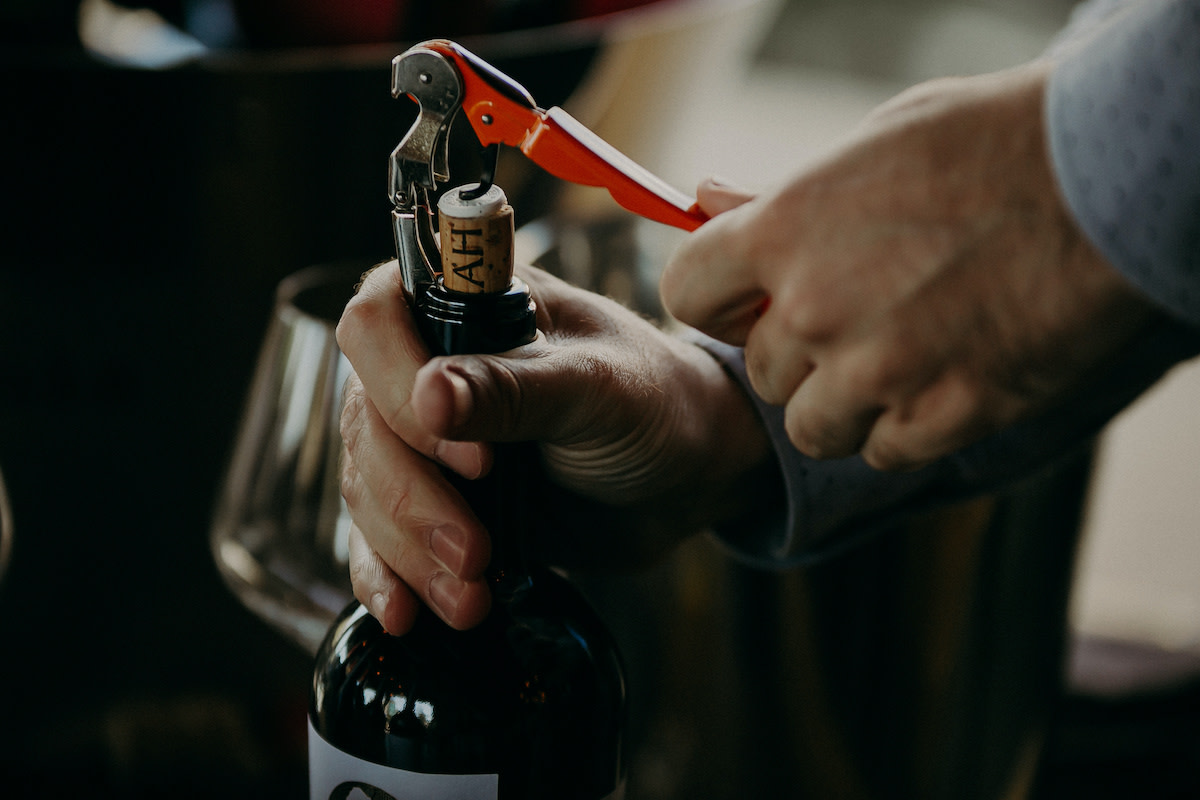How Long Does Open Wine Last? 4 Ways to Keep Wine Fresh
Written by MasterClass
Last updated: Jun 7, 2021 • 4 min read
Learn how to keep an open bottle of wine fresh as long as possible.
Learn From the Best
Does Wine Go Bad?
Exposure to oxygen and bacteria can affect the quality and drinkability of opened wine. There are two main reasons for an opened bottle of wine to spoil: Bacteria in an opened bottle can convert the alcohol into a vinegary acetic acid, and exposure to air can oxidize opened wine, causing it to lose its flavor and color.
How Long Does an Open Bottle of Wine Last?
A wine’s shelf life after its been opened depends on how light or heavy the wine is, but most wines last between three and five days.
- Rosé and light white wines: Rosé and light white wines, such as Pinot Grigio, Sauvignon Blanc, and sweet Riesling, last 5–7 days in the refrigerator when corked. These wines are drinkable for up to a week, but you may notice the wine's fruitiness begin to dwindle sooner.
- Full-bodied white wine: Full-bodied white wines, such as oaked Chardonnay, Muscat, and Viognier, last 3–5 days in the refrigerator when corked.
- Sparkling wine: Bubbly wines begin to lose their carbonation immediately after opening and last 1–3 days in the refrigerator when corked. Traditional method sparkling wines like Cava, Champagne, and Franciacorta are highly pressurized and will last slightly longer than tank method sparkling wines like Prosecco, Moscato, and sparkling red Lambrusco. To help maintain the wine's fizz and prolong its shelf life, consider purchasing a specialty sparkling wine stopper.
- Light red wine: Light reds such as Pinot Noir, Lambrusco, and Gamay last 2–3 days when corked and stored in a cool, dark place. Lighter reds have fewer tannins and lower alcohol content than other red wines, so they won't last quite as long.
- Medium red wine: Medium reds like Merlot, Nebbiolo, and Cabernet Franc last longer than lighter reds due to their higher tannin and alcohol content and keep 3–5 days when corked and stored in a cool, dark place.
- Full-bodied red wine: Full-bodied reds like Cabernet Sauvignon, Shiraz (or Syrah), and Malbec last 4–6 days when corked and stored in a cool, dark place. Full-bodied red wines stay drinkable longer than other red wines because of higher tannin and acidity levels, which slow the aging process.
- Fortified wine: Fortified wines last 28 days when corked and stored in a cool, dark place. Fortified wines like Sherry, Port, and Marsala have a much longer lifespan than other fortified wines because they also contain brandy. In general, sweet fortified dessert wines last a little longer than dryer fortified wines. Marsala and Madeira are exceptions to the 28-day rule—these two fortified wines will last for years due to their unique heating and aging process.
James Suckling on Screw-Cap vs. Corked Wine
4 Rules for Storing Opened Wine
To extend the shelf life of your leftover wine, adhere to the following rules:
- 1. Seal the bottle. To slow down the oxidation process, close an open bottle of wine either with its original cork, screw cap, rubber bottle stopper, or sparkling wine stopper. You can even get a fancy wine vacuum pump gadget, which enables you to suck the air out of an open bottle to create a nearly airtight seal. If you lose your cork (or can't fit it back in the bottle) and don't have a stopper, some plastic wrap sealed with a rubber band will work in a pinch. Pro tip: Instead of leaving your wine bottle open as you drink, close it after every glass you pour to keep it even fresher.
- 2. Keep your wine at a controlled temperature. You can simply store opened white wines in your refrigerator. The best red wine storage temperature varies slightly from wine to wine, but in general, around 55 degrees Fahrenheit is ideal. Since this is typically cooler than room temperature, you should store opened red wine in a wine refrigerator or chiller. You can also use a regular refrigerator as long as you remove the bottle an hour before serving so it can warm up.
- 3. Protect wine from light. UV rays from direct sunlight can damage wine’s flavors and aromas, so you should always store your leftover wine in a dark place.
- 4. Decant into a smaller bottle. If you're looking to extend the life of your opened wine further, decant leftover wine into a smaller bottle and close it. A smaller bottle minimizes oxidation since there's less space for oxygen in the bottle.
3 Ways to Tell If Opened Wine Has Gone Bad
If you are not sure whether or not wine is still drinkable, three indicators can help you decide whether to pour it down the drain or to pour another glass:
- 1. Smell: If the wine has lost its fruity aroma and instead smells more like vinegar, that means the wine is past its prime.
- 2. Color: Wine will change color slightly once it starts to oxidize. Avoid a white wine if it turns to a darker yellow color and a red wine that develops a brown hue.
- 3. Taste: If your leftover wine looks and smells fine, the last thing you can do is taste it. It's safe to drink wine that's gone bad—it just won’t taste great. Take a small sip for your taste test to avoid an unpleasant wake-up call for your tastebuds, and if it tastes funky, ditch it for a fresh bottle.
Learn More
Want to learn more about the culinary arts? The MasterClass Annual Membership provides exclusive video lessons from the world’s best chefs and wine critics, including James Suckling, Lynnette Marrero, Ryan Chetiyawardana, Gabriela Cámara, Gordon Ramsay, Massimo Bottura, and more.
